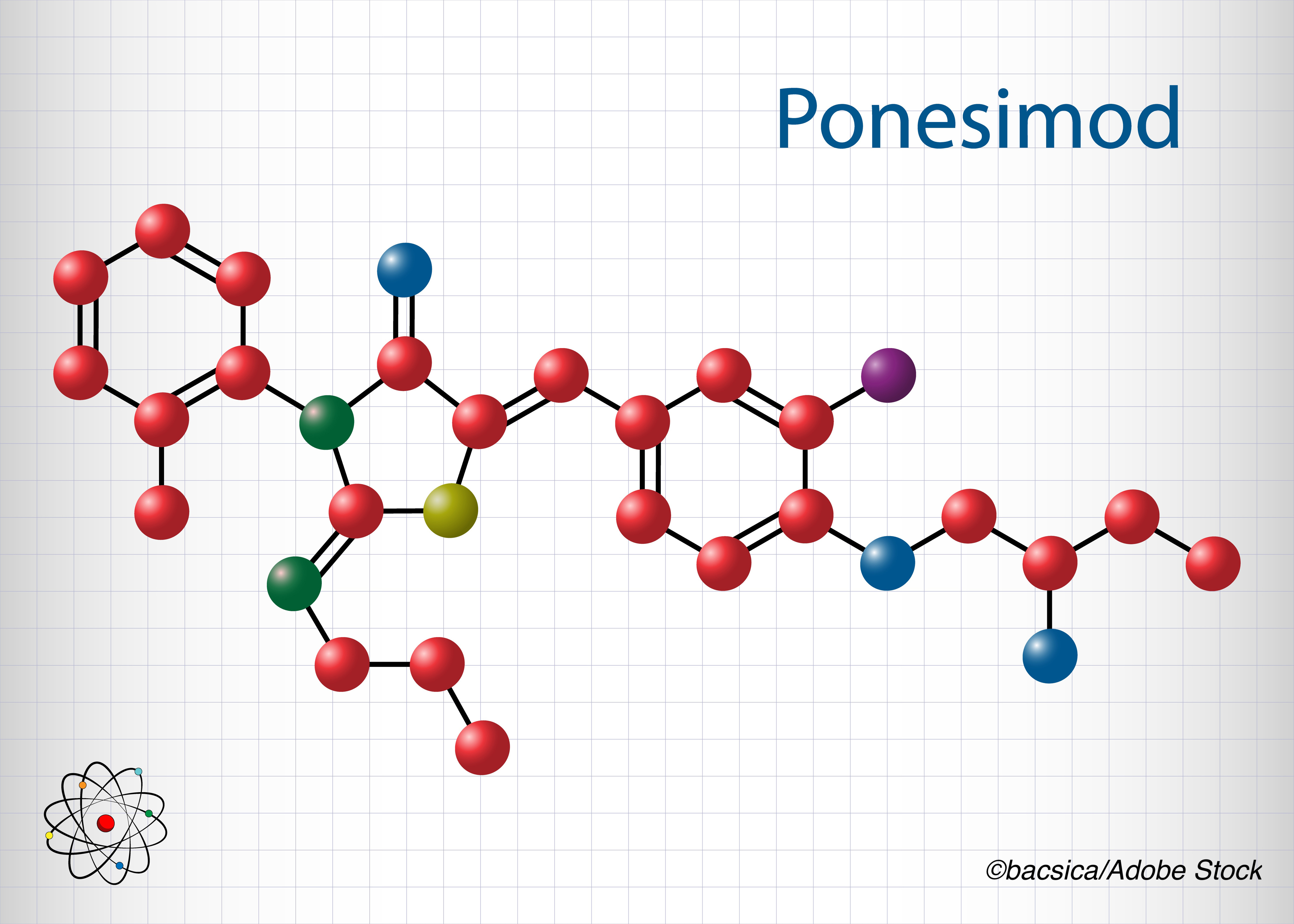The FDA approved ponesimod (Ponvory) oral tablets to treat adults with relapsing forms of multiple sclerosis (MS), including relapsing-remitting and secondary progressive MS.
The drug, a once-daily selective sphingosine-1-phosphate receptor 1 (S1P1) modulator, was approved based on results from the two-year, head-to-head, randomized phase III Oral Ponesimod Versus Teriflunomide in Relapsing Multiple Sclerosis (OPTIMUM) study, the drug’s manufacturer, The Janssen Pharmaceutical Companies of Johnson & Johnson, explained in a company press release.
“In the pivotal study, ponesimod demonstrated superior clinical efficacy in reducing annual relapses and MRI activity compared against teriflunomide, another oral MS therapy. Those results, combined with a favorable side effect profile, make ponesimod a useful treatment option for people with relapsing MS,” said lead trial investigator Robert J. Fox, MD, staff neurologist at the Mellen Center for MS Treatment and Research and Vice-Chair for Research at the Neurological Institute in the Cleveland Clinic. The manufacturer noted that Fox has served as a paid consultant to Actelion Pharmaceuticals Ltd and Janssen as a member of the ponesimod Advisory Board.
The OPTIMUM trial, which included a total of 1,133 patients, pitted 20 mg oral ponesimod against 14 mg oral teriflunomide — the study’s primary endpoint was the annualized relapse rate (ARR) from baseline through the end of the study period. Over the study period, ponesimod proved 30.5% more effective in reducing ARR compared to teriflunomide, with 71% of patients on the S1P1 modulator seeing no confirmed relapses compared to 61% of patients in the teriflunomide group. Ponesimod also proved superior in reducing the number of new gadolinium-enhancing T1 lesions and the number of new or enlarging T2 lesions by 59% and 56%, respectively.
The manufacturer also noted that ponesimod prevented disability worsening for nine in ten trial participants, though the difference in rates if disability progression was not statistically significant between the ponesimod and teriflunomide groups. And, if patients need to stop ponesimod for any reason, the drug “leaves the blood within one week, with effects on the immune system wearing off in one to two weeks for most patients,” the company added. “This may offer additional flexibility in treatment management if patients need to receive vaccines, address potential infections, or begin family planning.”
The most common adverse events among ponesimod-treated patients in the OPTIMUM trial included upper respiratory infection, hepatic transaminase elevation, and hypertension.
Ponesimod can also potentially increase patients’ risk of serious or life-threatening infections due to reductions in lymphocytes. Also, the manufacturer warned, the drug can cause a patient’s heart rate to slow, particularly after taking the first dose. Patients who are prescribed ponesimod should receive an electrocardiogram to check the heart’s electrical activity prior to taking their first dose, and patients should use the ponesimod Starter Pack, which contains instructions for slowly increasing the dose over a period of 14 days to reduce the risk of bradycardia or bradyarrhythmia.
Patients should not take ponesimod if they have suffered a heart attack, unstable angina, stroke, transient ischemic attack, or certain types of heart failure in the previous six months, or if they have a cardiac arrhythmia. Patients should not receive live vaccines during their treatment with ponesimod, for at least one month prior to starting the drug, or for one to two weeks after stopping treatment.
John McKenna, Associate Editor, BreakingMED™
Cat ID: 36
Topic ID: 82,36,730,36,192,725,925



